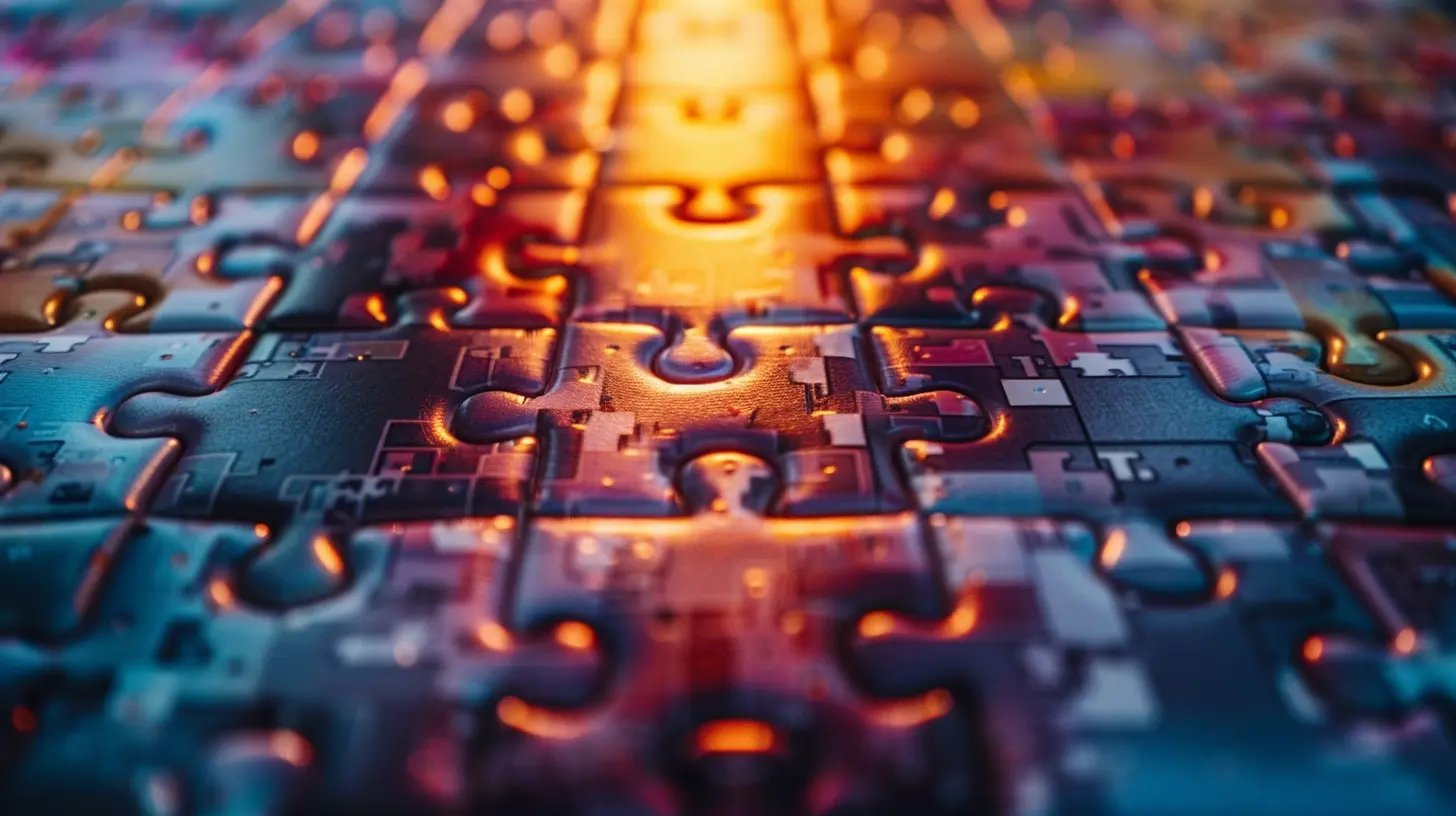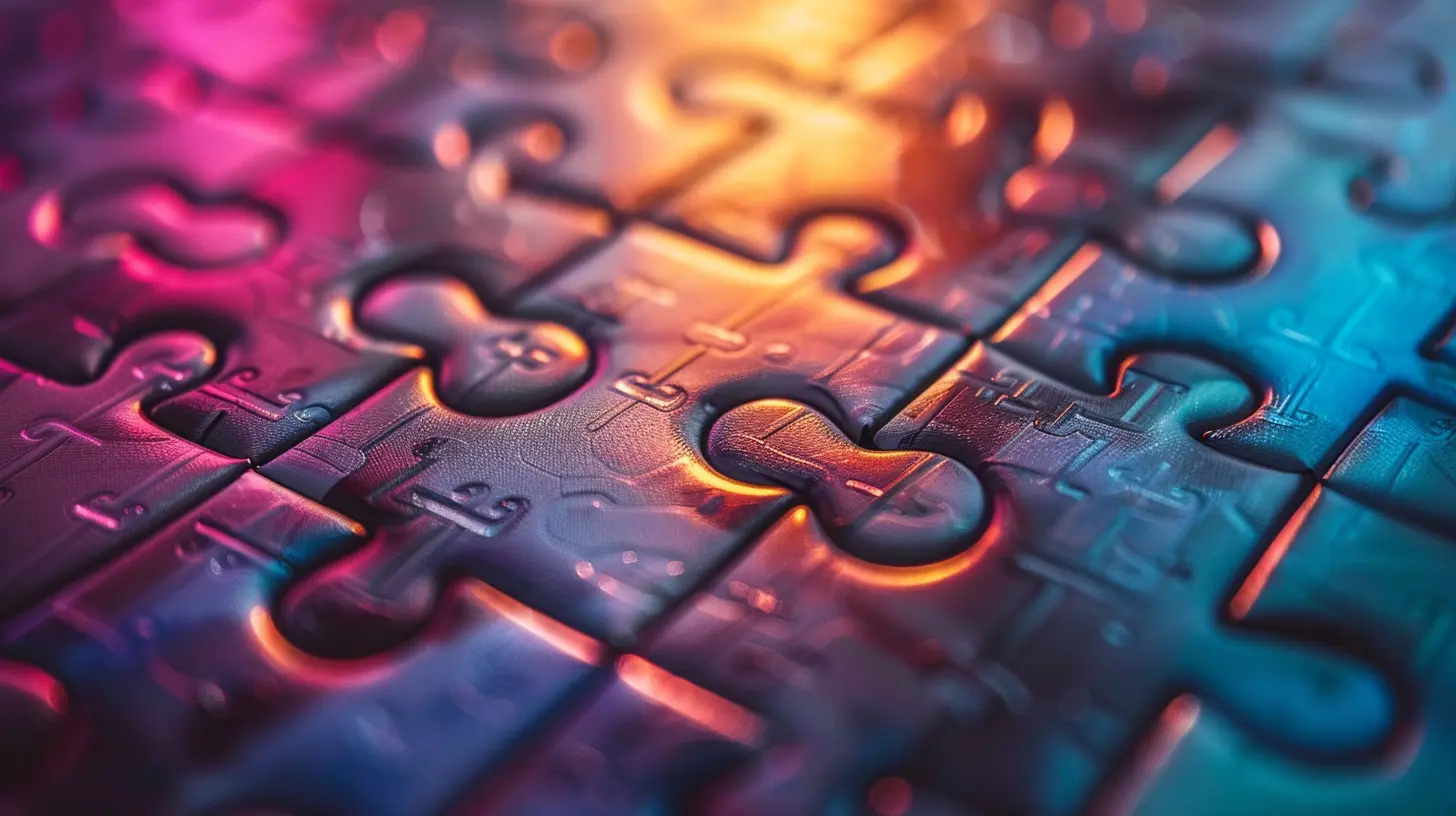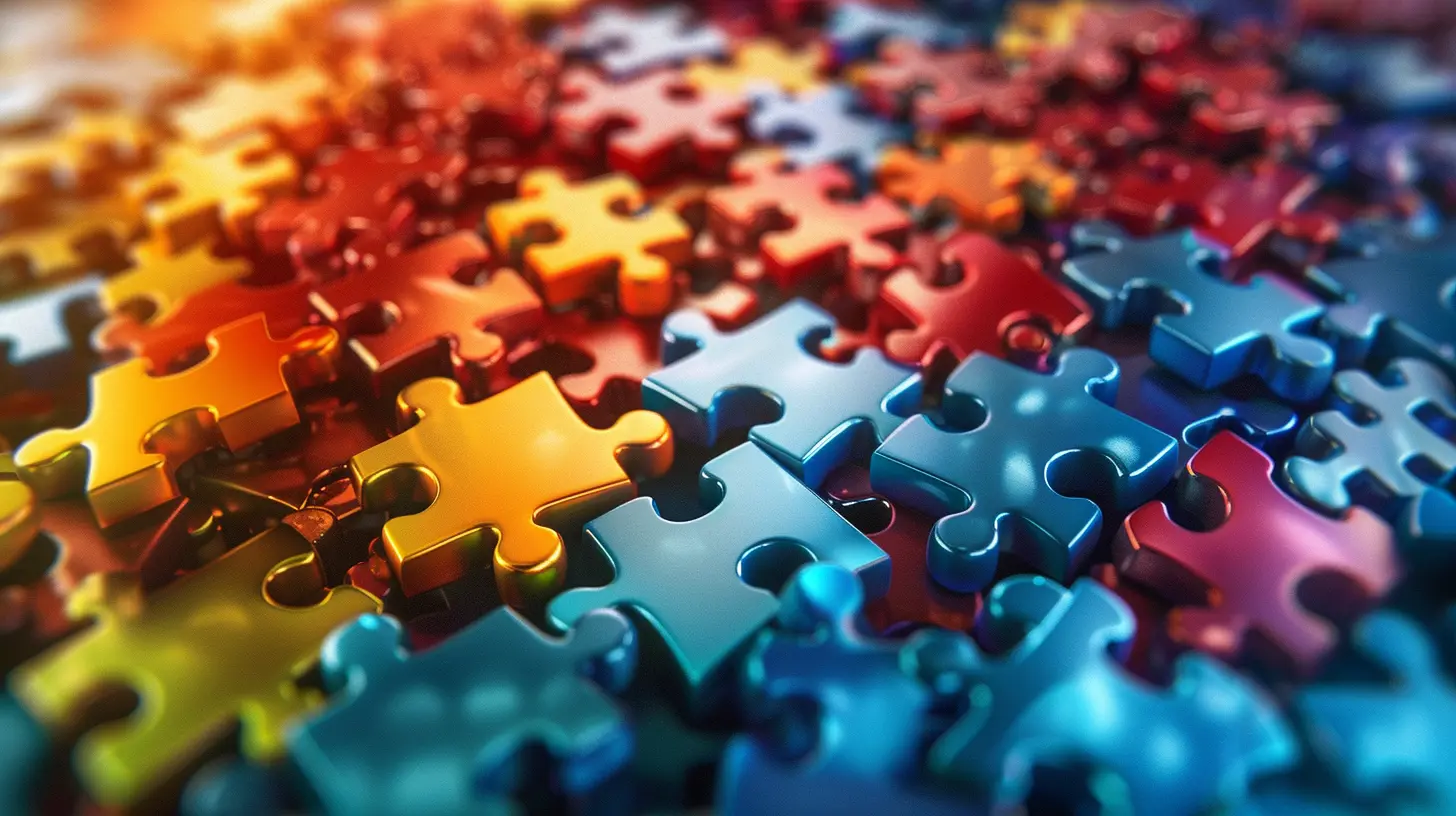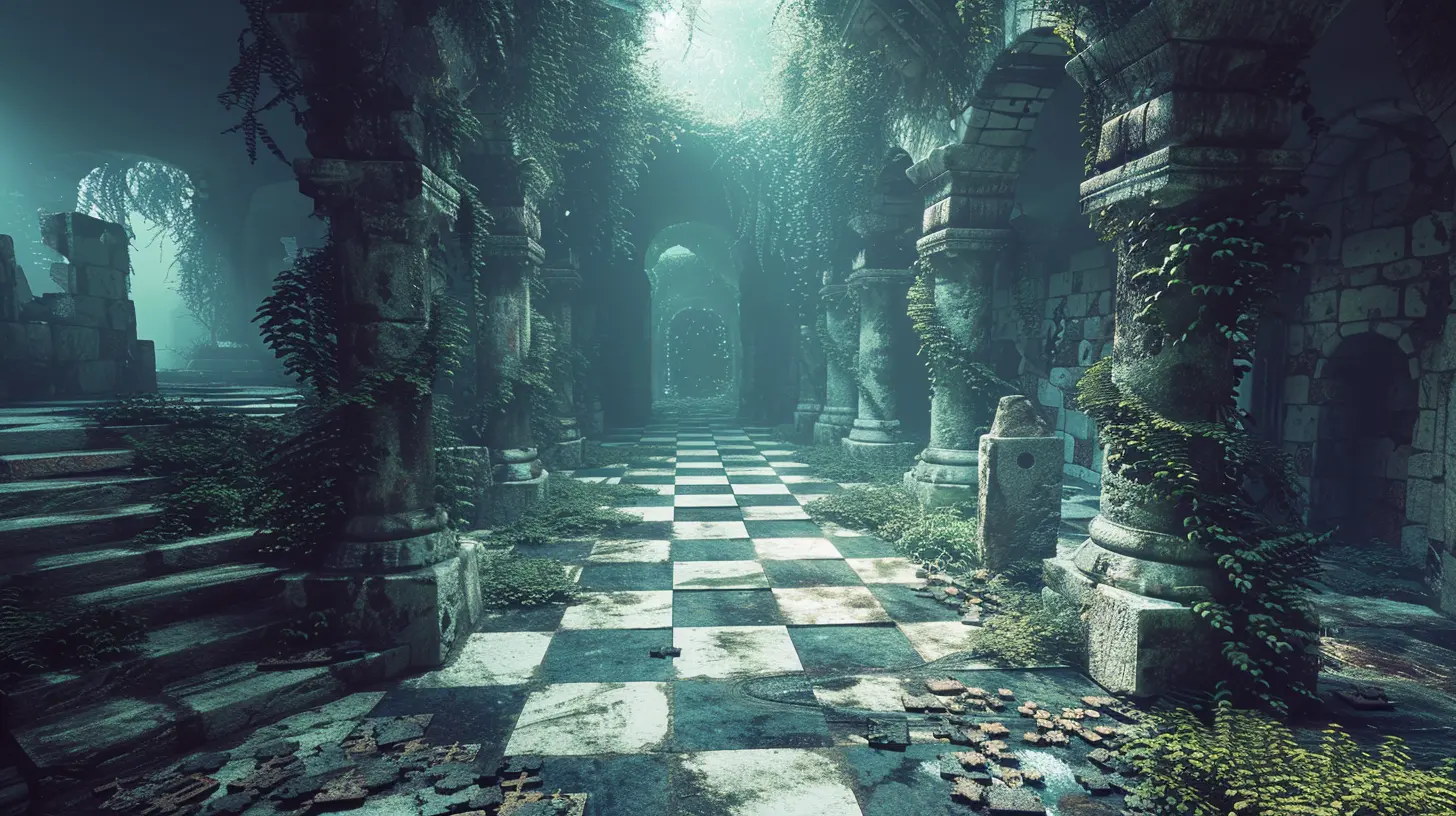How Puzzle Games Strengthen Memory and Focus
12 June 2025
Who doesn’t love a good puzzle game? There's something incredibly satisfying about solving a tricky puzzle, right? Whether it’s piecing together a 1,000-piece jigsaw, crushing candies in a match-3 game, or tackling a crossword, puzzle games are more than just a fun pastime. They’re sneaky little brain boosters that can significantly improve memory and focus. But how exactly does this work? Let’s dive into the fascinating connection between puzzle games and those brainy perks you might not even realize you’re getting.
The Science Behind Puzzle Games and Your Brain
Ever heard the phrase “Use it or lose it”? While it may sound like something your gym buddy would say, it also applies to your brain. Puzzle games push your brain to think, analyze, and strategize. It’s like a mental gym workout but without the sweaty equipment or overpriced membership.When you solve puzzles, different parts of your brain light up like a Christmas tree. For example:
- Your memory center (hippocampus) steps up to remember shapes, patterns, or clues.
- The prefrontal cortex, often called your brain’s “CEO,” strategizes and figures out what steps to take next.
- The parietal lobe helps with spatial reasoning, like figuring out how pieces fit together.
Every time you wrestle with a puzzle, you’re flexing these brain muscles. Over time, this reinforcement can strengthen memory retention and increase your ability to focus on tasks. Pretty cool, huh?
Puzzle Games and Memory: A Perfect Match
Think of your memory like a bookshelf. Over time, it gets stuffed with an endless stream of books (a.k.a. information). Playing puzzle games is like organizing that cluttered shelf. It forces you to retrieve and sort information quickly.1. Strengthening Short-Term Memory
Remember where that specific jigsaw piece with the little red flower went? Or recalling which candy to swap to create a combo? These moments activate your short-term memory. By keeping this mental notepad sharp, you can also improve your ability to remember things in your daily life—like where you left your keys (finally).2. Boosting Long-Term Recall
Certain puzzles, like logic games or Sudoku, require recalling strategies you’ve used before. This mental repetition reinforces neural pathways in the brain, making it easier to store and retrieve information down the line. Think of it as upgrading your storage system. Instead of a dusty filing cabinet, you’re getting sleek, cloud-based memory.
The Zen-Like Focus Puzzle Games Create
Have you ever been so absorbed in a puzzle that hours passed without you even realizing it? That’s called flow state, and it’s one of the secret ingredients that make puzzle games such incredible focus-builders. This state of deep concentration doesn’t just help during gameplay—it trains your brain to replicate that level of focus in other areas of life.1. Breaking the Distraction Cycle
We live in a world full of notifications, buzzing phones, and constant interruptions (thanks, social media). Playing puzzle games is like hitting the pause button on all that noise. It forces you to focus on one task at a time, which is a habit we could all use more of.2. Improving Attention Span
Let’s face it: Our collective attention spans have taken a hit lately. But puzzle games encourage sustained focus. Whether you’re trying to finish a Sudoku grid or figure out which word fits in a crossword blank, these activities train your mind to stick with a challenge until it’s solved.
Types of Puzzle Games and Their Unique Benefits
Not all puzzles are created equal, but they all bring something valuable to the brain-table. Here’s a quick breakdown of popular puzzle game genres and how they help:1. Jigsaw Puzzles
Jigsaws are the OG of puzzle games. They’re perfect for improving visual-spatial reasoning and patience. Plus, piecing together a puzzle often requires comparing shapes and colors, which is a great way to enhance your brain’s ability to recognize patterns.2. Logic and Strategy Games (e.g., Sudoku, Chess)
These games are like mental boot camps for your brain. They sharpen critical thinking, planning, and decision-making skills. If you’ve ever mastered a tough Sudoku or won a chess match, you know it’s all about strategy and logic.3. Match-3 Games (e.g., Candy Crush or Bejeweled)
Don’t write off match-3 games as mindless time-wasters—they’re actually great for improving pattern recognition and quick decision-making. Who knew crushing candies was good for you?4. Word Puzzles (e.g., Crosswords, Wordle)
Word puzzles are a double whammy: They enhance vocabulary while also exercising your memory. Have you ever played Wordle and thought, “Wait, what even is a five-letter word that starts with X?” That mental workout is exactly what your brain loves.Why Consistency is Key
Here’s the thing: Playing a puzzle game once won’t turn you into a mental powerhouse overnight. (If only, right?) But consistent gameplay—even just 15-20 minutes a day—can lead to long-term cognitive benefits.Think of it like brushing your teeth. You wouldn’t skip brushing for weeks and expect your pearly whites to stay shiny, would you? The same goes for your brain. Regularly challenging it with puzzles keeps it sharp, focused, and ready for the next challenge life throws your way.
Puzzle Games Aren’t Just for Adults
Kids can also get in on the puzzle action! From building stronger problem-solving skills to improving hand-eye coordination, puzzles are a fantastic brain-building tool for all ages. Plus, they’re a great way for families to bond. Ever tried solving a massive jigsaw together? It’s teamwork and brainpower rolled into one.Digital Puzzles vs. Physical Puzzles: Does It Matter?
Not really. Both digital and physical puzzles can deliver the same benefits when it comes to memory and focus. Want the tactile satisfaction of sliding that final jigsaw piece into place? Go old school with a physical puzzle. Prefer the convenience of on-the-go gameplay? Download a mobile puzzle game. Either way, your brain wins.More Than Just Fun and Games
There’s a reason why doctors and scientists recommend puzzles for cognitive health. For older adults, puzzles can help delay cognitive decline and keep the brain active. For everyone else, they’re a handy (and fun!) way to boost brainpower without feeling like you’re doing “homework.”And let’s not forget the emotional benefits. Completing a tough puzzle—even a small one—releases a little hit of dopamine, a feel-good neurotransmitter. It’s like your brain’s way of giving you a high five.
Quick Tips to Get Started with Puzzle Games
Ready to put your brain to work? Here are a few tips to make the most out of your puzzle time:1. Start Small: Don’t dive into a 5,000-piece jigsaw on day one. Start with smaller, manageable puzzles to build confidence.
2. Set a Routine: Dedicate a specific time each day to play. Maybe it’s during your coffee break or before bed.
3. Mix It Up: Experiment with different types of puzzles to keep things fresh and engaging.
4. Challenge Yourself: Gradually increase difficulty as you improve. Your brain loves a challenge!
Final Thoughts
Puzzle games may seem like simple entertainment, but they’re actually one of the best tools for strengthening memory and focus. Whether you're 8 or 80, there’s a puzzle out there with your name on it. So the next time you feel like your brain could use a little TLC, skip the self-help books and fire up a good puzzle game instead. Trust me—your future self (and your brain) will thank you.all images in this post were generated using AI tools
Category:
Puzzle GamesAuthor:

Stephanie Abbott
Discussion
rate this article
3 comments
Bryce McIntyre
Great insights! Puzzle games truly offer a fun way to enhance memory and focus. It's inspiring to see how engaging our minds with challenges can lead to lifelong cognitive benefits. Keep up the fantastic work!
June 18, 2025 at 3:42 AM

Stephanie Abbott
Thank you! I'm glad you found the insights valuable. Puzzle games really do offer incredible cognitive benefits!
Brianna Cummings
Thank you for shedding light on the benefits of puzzle games! It's wonderful to see how these engaging challenges not only entertain but also enhance our memory and focus. For many, these games provide a much-needed mental workout, fostering both cognitive skills and a sense of accomplishment. Keep up the great work!
June 17, 2025 at 3:33 PM

Stephanie Abbott
Thank you for your thoughtful comment! I'm glad you enjoyed the article and recognize the value of puzzle games in enhancing cognitive skills. Happy puzzling!
Hunter Reilly
Great insights! It's fascinating how puzzle games can enhance cognitive skills like memory and focus. Thanks for sharing these benefits!
June 12, 2025 at 4:46 PM

Stephanie Abbott
Thank you! I'm glad you found the insights valuable. Puzzle games truly are a fun way to boost cognitive skills!



